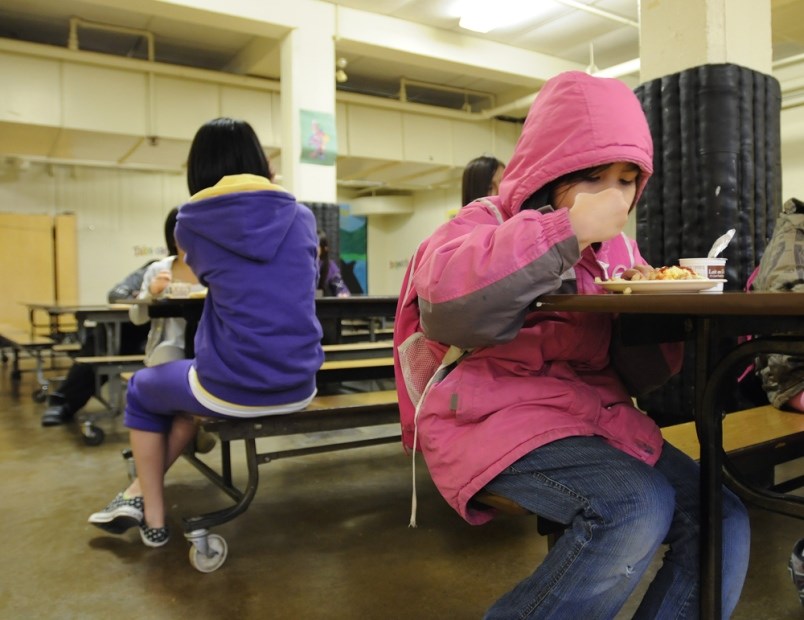I’m unconvinced we have an empty homes problem in Vancouver, but I know we have an empty stomachs problem.
In a city of such affluence and conspicuous consumption, do we even need to have a discussion on child hunger? Seems sadly so, because our elected representatives at the local, provincial and federal levels can’t resolve their petty jurisdictional issues or biases on how to deliver basic sustenance to those unable to look after themselves.
We spend ridiculous sums on ridiculous things by comparison. The bickering and buck-passing are disgraceful emblems of bureaucracy gone mad.
The child headed into the day without food is the child who will run low on energy, lose focus on schoolwork, eat the most available food for immediacy and largely fall further and further behind in the mercenary landscape that sorts winners and losers all too early in life. Health and wealth outcomes are … well, we know what they are. Enough said.
I was lucky beyond belief to dodge the worst of that plight. My single mother was at work when I awoke – besides, we had little food in our fridge and cupboard – and from the outset I got off to school hungry most mornings and was the scrawny kid in the class.
But by many middays as a kid I had reconstituted my system thanks to Mrs. Ota, Mrs. Scherbaty, Mrs. Dupuis, Mrs. Bertucci or Mrs. Ringbauer. Schoolmates would share a sandwich or fruit, and I could name a dozen of them without pressing my memory. You remember these people all your life.
But that informal community doesn’t exist as much in this age of children not routinely walking to and from school, playing out front or in a backyard until the sun sets and knowing the families on the street or in the building. We need to deal with the issues differently than to expect our neighbourhoods to look after their own.
I’ve learned that child hunger in this city is not as clearly tied as one might think to income levels. So many households are stretched, holding down long workdays to meet the expensive demands on their lives – even in neighbourhoods we might think are fine, there will be hunger, albeit less evident. I know, because I’ve asked the experts in this city about it, and I’ve seen the children in question.
When I ran for office in 2014, I was invited by many wonderful people into their houses to talk to 20 or 30 people and tell them my story and how I wanted to do something about this awful symptom of our city. Many saw the need but, not wrongly, wondered if this was the city’s job. I agree it may not be, but until we have a solution, the city is the last line of defence; while the politicians write letters and point fingers elsewhere, children aren’t fed. Enough already.
I mentioned the issue enough in those houses that my opponents learned about my plan, one morning sprang a funding announcement for school lunch funds, and caught our team off guard without a policy proposal in hand. In hindsight, just getting word around had some effect, because those dollars are still in the system through our schools.
Trouble is, the school delivery method is a weak one: on weekdays, on school days, through relatively expensive amenities of a school kitchen. This is not a jab at unions, but hunger doesn’t abide anyone’s workweek. As the city reviews the cost of these programs, it needs to look at deficiencies of the delivery schedule: weekends, lengthy school breaks, professional development days, even snow days. Hunger never takes a day off.
There also has to be something to recognize the stigma of poverty prevents many from raising hands for help. Some help hungry kids with vouchers to discreetly use at stores for their food in the morning or at midday. Morning and midday food trucks some distance from school could be an option.
Council will hear shortly about options for more efficiency. Councillors recently gave themselves $30,000 in research funds, so they’d better not cut the food money for children until there is a bigger, better plan – perhaps the arrival of the province’s anti-poverty strategy – or I will be among many howling, full-throat, full-stomach. •



